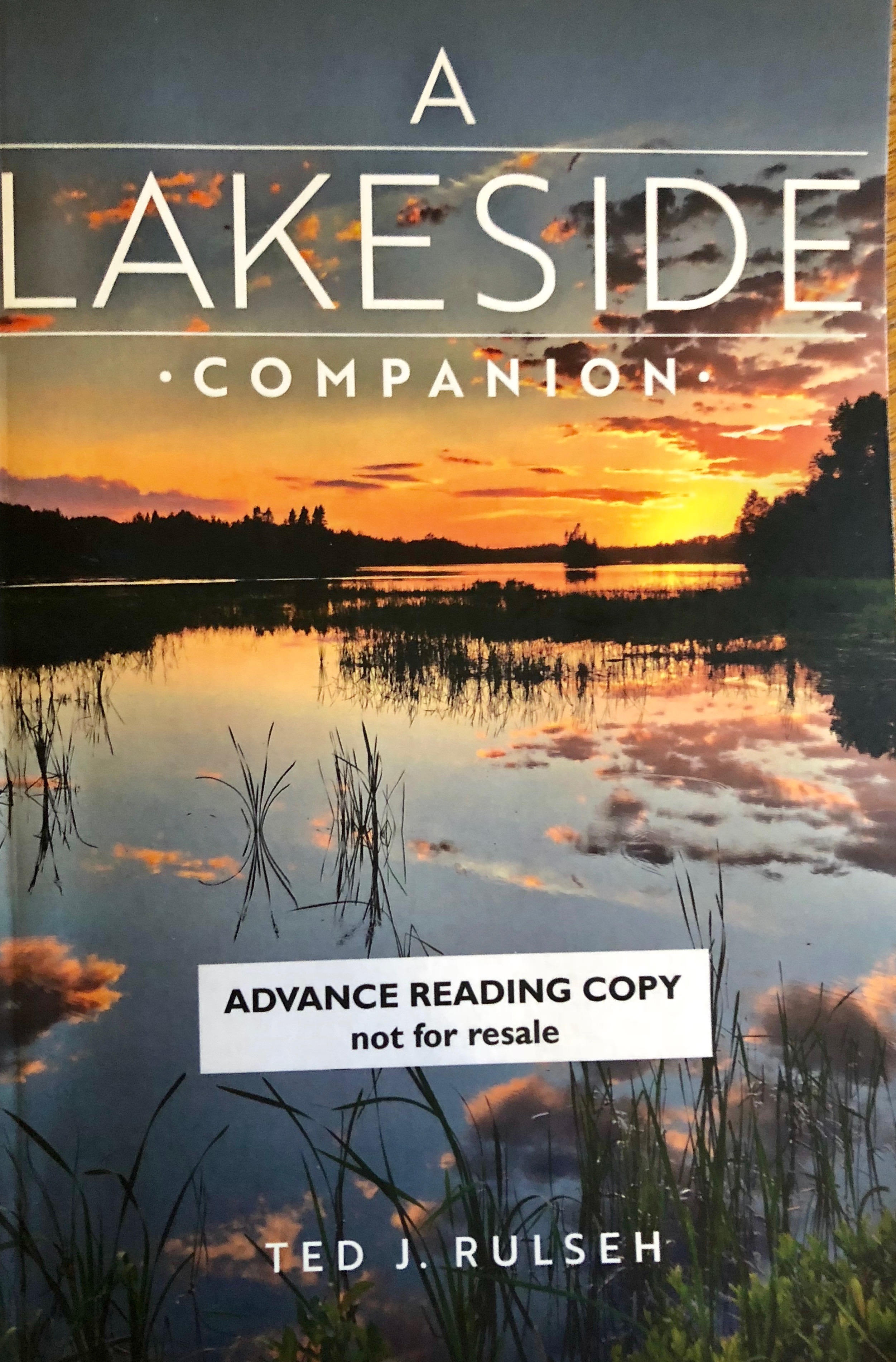Book Review: A Lakeside Companion

BY MIKE MCFADZEN
I’ve always been a water-rat. Born in Milwaukee and raised in Two Rivers, waterscapes always amazed me. I loved the huge summer waves that would roll me around when I was too young to care. Snowstorms coming off the big pond fascinated me. I love paddling and still sneak under the water and peer around to see what’s happening. That’s the reason I gave “A Lakeside Companion” a read.
Author Ted J. Rulseh discusses all aspects of how lakes function, including reviewing the animals that inhabit them, how flora effect lakes, what happens when lakes freeze and much more.
Did you know that fish scales show growth rings similar to rings of a tree? Rulseh’s book gets at the heart of what’s happening at your favorite lake, or any lake for that matter. He tackles the scientific side in easy-to-understand prose. This includes the type of lake, trophic status, drainage, alkalinity, nutrients and connections. Rulseh points out that lakes, streams, rivers, groundwater and rainfall are all one interconnected water system. There are excellent explanations of the animals, fish and other creatures that occupy lakes. He certainly portends a conservation ethic through much of the book.
The book is organized into mini-chapters, with each handling one or more topics.
TEACHING KIDS TO LOVE THE LAKE: “One privilege of being a grandpa is the chance to influence young minds…..The indoctrination advances each time they pay a visit…….If you have similar subversive intentions with your kids and grandkids, here are some tricks to consider.” Rulseh goes on to describe taking kids paddling, swimming, fishing, watching sunsets and stargazing.
IF BAD GUYS WERE BIGGER: “A poster in my doctor’s office shows a boy looking down at his hands which are infested with all sorts of big, ugly, wormlike green, purple, and pink creatures. And the poster says, “’If germs were bigger, would you wash your hands more?” It’s useful to think of this when we consider properly taking care of the boats we move from one lake to another for fishing and other recreation. We all (I should hope) regularly remove any weeds from our boat and trailer when we take it out of a lake……Unlike handwashing, these are not matters of personal hygiene. Instead, they are critical practices for protecting our lakes, and they only matter if everyone observes them. All it takes to spread invasive species to a new lake is for one angler or boater to be careless.”
WHO LOOKS OUT FOR YOUR LAKE: “Chances are that volunteers do – members of friends groups, lake associations, and lake districts. These people do the work that helps control and prevent invasive species, improve fish habitat, reduce nutrient inputs, install best practices to mitigate runoff, monitor and report lake water quality date and a great deal more.”
CARING: “We certainly want to protect the lake, so before building, we got familiar with the county’s shoreline zoning ordinance. We did not dread how it would limit our use…..Some might argue that it’s our land: we paid good money for it, so we should be able to do with it pretty much as we like; this is America. We saw it differently. I’m not about to nominate us for lake stewardship sainthood. We did it largely out of self-interests.”
If you are looking for a book on paddling, this isn’t the book for you. Good paddle reads include “Paddling Wisconsin” by Kevin Revolinski, “Paddling Northern Wisconsin” and “Paddling Southern Wisconsin” by Mike Svob, and “Canoeing & Kayaking South Central Wisconsin” by Timothy Bauer.
It’s not one of those books you can’t put down, but it’s an important book if you have interest in how lakes function. Anyone who uses lakes – whether it’s for recreation or just plain fun – will have a better understanding of the interrelated workings of water systems. I’ve been involved with natural resources for many years, continually educating myself on a variety of topics, but this book really opened my eyes to how lakes work. I find myself referring back to the book when observing natural phenomena at my lake property.
Ted J. Rulseh writes the syndicated column “The Lake Where You Live” and is active in lake advocacy organizations, including the Wisconsin Citizen Lake Monitoring Network. I’ve met Rulseh and recently saw him in action at the Cassian Town Board meeting where he and other members of the Friends of Birch Lake requested a boat access on Birch Lake. Rulseh is the author of several books on the Great Lakes region including “On the Pond: Lake Michigan Reflections.”
A Lakeside Companion is published by The University of Wisconsin Press and will be available at retail outlets and online in September.

